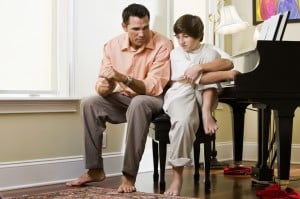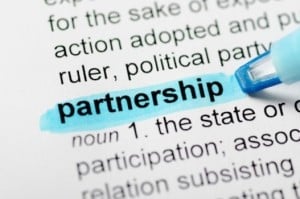
Source: Children’s Ministry Online
As 44% of rape victims are under the age of 18, an honest and detailed conversation about rape has become an essential part of creating a safer world for our children.
We often discuss issues of safety and prevention with our daughters, but are we having critical conversations about rape with our sons?
At what point do we recognize that our sons could be potential victims too? When will we stop placing the onus on our daughters to not get raped and start insisting our sons stop raping others? When will we recognize that our own silence and our choices to forgo these difficult conversations contribute to a climate of stigma and complicity?
The truth is that our sons can be victims of rape, too. They can also be bystanders, confidants, or rapists. Rapists are someone’s friend, someone’s son.
It would be convenient to assume that all rapists are sociopaths or a small part of some remote faction of the human population, but voluminous data and current statistics remind us otherwise. With a sexual assault occurring every two minutes in the United States, rape is sadly a common occurrence.
Rapists are our neighbors, our co-workers, our friends, our friends’ children, and sometimes, our family. No parent wants to believe that their own child could be capable of such an injustice. And that is precisely why this conversation is so critical.
Undoubtedly these conversations are challenging, but they are important. The goal is to have more of these difficult conversations early on, so as to prevent human injustices later on. If we have more open dialogue, we can eradicate the deep-seated stigma and pre-set gender barriers.
With each awkward conversation and uncomfortable talk, we methodically create a safer world where we all share equal worth and where the concept of masculinity is redefined and elevated.
So how do we start these conversations, and what do we talk about? Here are a few tips.
1. Start with Consent
The conversation about rape can begin with clear definitions of consent.
Our sons need to understand that ‘no’ always means ‘no’. ‘No’ means ‘no’ whether a person is a virgin or a sex worker, whether they decided to changed their mind, or even if they’re drunk.
In fact, if an individual is drunk, even ‘yes’ means ‘no’. Our sons must understand that when alcohol or drugs are involved, a person who is intoxicated is not legally capable of consenting to sexual acts.
2. Encourage Safe Words
There are many dynamics to sexual boundaries, and sometimes things can get complicated.
Encouraging clear communication in relationships and during sexual experiences reduces the chance for mixed signals, as well as the anger, rejection, and other emotions that may arise in such instances. It also reduces the abuse or mistreatment that could be spawned by these emotions.
When we encourage our sons to create a safe word with their partners, all partners have a code word that they mutually understand to mean ‘stop’.
Even if their safe word is a straightforward ‘stop’, having the discussion and developing a safe word demonstrates a conscious willingness to establish and respect boundaries.
Clear communication can only make the sexual experience safer.
3. Talk Consequences
Teenagers and young adults will test boundaries. Testing limits is expected. There will be a time when parents will have to make critical decisions about being a child’s parent rather than their friend.
In these defining moments, it is necessary to remind our children about how powerful their choices can be—for better or for worse.
It is most often our goal as parents to protect our children, but we must acknowledge to our sons that there may come a time when we can no longer protect them. When a legal boundary has been crossed or someone has been violated in some manner, our sons need to understand that there will often be serious consequences to broken rules and violated laws.
We must encourage our sons to think about the long-term effects behind their decisions, as momentary decisions leave lasting effects.
Of course, illegality should not be the only reason you teach your son not to rape. You must teach them to respect the wishes of other people first and foremost.
Speaking of teaching respect toward other people…
4. It Isn’t Just About Rape
The seeds of rape begin to take root long before the assault. It starts with smaller instances of disrespect first.
Sexual violence starts with the names boys call a girl because she wore a short skirt. It starts with a girl being labelled as a ‘slut’ because she made out with a few boys at school.
Your conversation with your son needs to be about the popular songs (of all genres, not just rap and hip-hop) that contain misogynistic language, and melodically blur the lines of control and consent. You need to talk about the sports stars, movie actors, music idols, and political figures who engage in salacious, publicized sexual indulgences—all for the sake of status.
Talk about about how the objectification of women is apparent in everything from sexualized cartoon princesses marketed to kids, to the three-billion-dollar-a-year pornography industry.
When you talk to your sons about sexual violence, it shouldn’t just be about rape because sexual violence isn’t just about rape. It’s about deep-seated and society-wide misogyny, and your conversation should reflect that.
5. Lead, Don’t Follow
We must challenge our sons to break out of the objectified boxes our society creates rather than letting them follow the guidelines provided by a misogynistic society.
We must underscore that any person’s worthiness, for better or for worse, is not derived from their sexual experiences.
We need to remind our sons that what is popular is not always right. We must acknowledge these ironies, double standards, and injustices.
We need to point them out to our sons each time we see them. We need to repeatedly highlight them in a big, bold way so that our sons will recognize these issues as unacceptable as they continue to encounter them.
6. Break the Code of Silence
A significant part of rape—and what allows the stigma around rape to continue—is the silence of others. Rape is not about sex; it is about power, and power thrives by silencing opposition.
Intimidation around rape is not exclusive to the victim; it often applies to bystanders and those who know the rapist. We must educate our sons that it is never acceptable to remain silent on these matters.
We must also offer our sons a plan. We must let our sons know that if they are ever in a situation where there is an imminent danger to another person, they should step away and call a trusted adult—a parent, a police officer, or another person of authority.
We must underscore how important their decisions are. Their decision to speak up could have a beneficial effect on another individual for the rest of that person’s life.
Adversely, our sons must know that their decision to remain silent or minimize a situation could effect the trajectory of that person’s life in a destructive way as well.
7. Offer Ways to Support Nonviolence
There are so many ways for our sons to support nonviolence against women. Rape and sexual abuse are not merely women’s issues. They are human issues.
Our son’s decisions not to laugh at sexist jokes matter. Our son’s decisions not to tell sexist jokes matter.
From refusing to use derogatory language to describe women, to taking the time to read up on what researchers say about rape and rape culture, there are numerous ways our sons can choose strength, beauty, and love over abuse.
Research some of these methods and talk to your sons about them.
8. Encourage Efforts to End Oppression
Rape thrives off many forms of prejudice including racism, homophobia, and religious intolerance.
Working toward a more just society where all are respected is a step in the right direction. Such experiences can raise a level of awareness that cannot be attained in discussion alone.
So encourage your sons to check any privileges they may have and to join the cause to end all forms of oppression.
9. Recognize That Men Get Raped
10% of rape survivors are male. It is estimated that 15-20% of males are sexually abused in their lifetime.
It is important that our sons know that men are raped too, and many men they will meet over the course of their lifetime have survived sexual abuse or rape.
Knowledge is key to perception and essential in understanding the truth about sexual violence.
10. Walk the Walk
As parents, our children will hear what we say and remember a portion of what we teach them. But our actions speak louder than our words.
So make sure you’re practicing what you preach. If necessary, take the time to reflect on your own behavior before talking about this with your sons.
Respect, after all, is best learned through practice.
***
Our children look up to us. We are the blueprints of how they will interact with the world. How we treat one another and the way in which we perceive the world is the framework by which our children will act.
If our sons grow up seeing love and respect, then love and respect will be familiar options.
If our sons know parents who chose kindness and compassion, these virtues will be synonymous with power rather than contrary to it.
[do_widget id=”text-101″]
Ann Brasco is a writer, public speaker, advocate, and mother. She earned her B.A. in both English and criminal justice from Caldwell University. She received her Master’s Degree in social work from New York University where she was awarded the Dr. Georgia L. McMurray Student Award for her outstanding contribution to services to children and families. Ann is a weekly parenting writer on nj.com. Her children’s book, Sweetie’s Search for a Forever Home in the Garden State, will be available online and in bookstores this September. Ann spends most of her time in northern New Jersey and Charleston, South Carolina. She is the wife of one lovable husband, as well as the mom of three feisty daughters and three spirited rescue dogs. Follow Ann on Twitter or on her Facebook page.
Search our 3000+ articles!
Read our articles about:
Our online racial justice training
Used by hundreds of universities, non-profits, and businesses.
Click to learn more




















